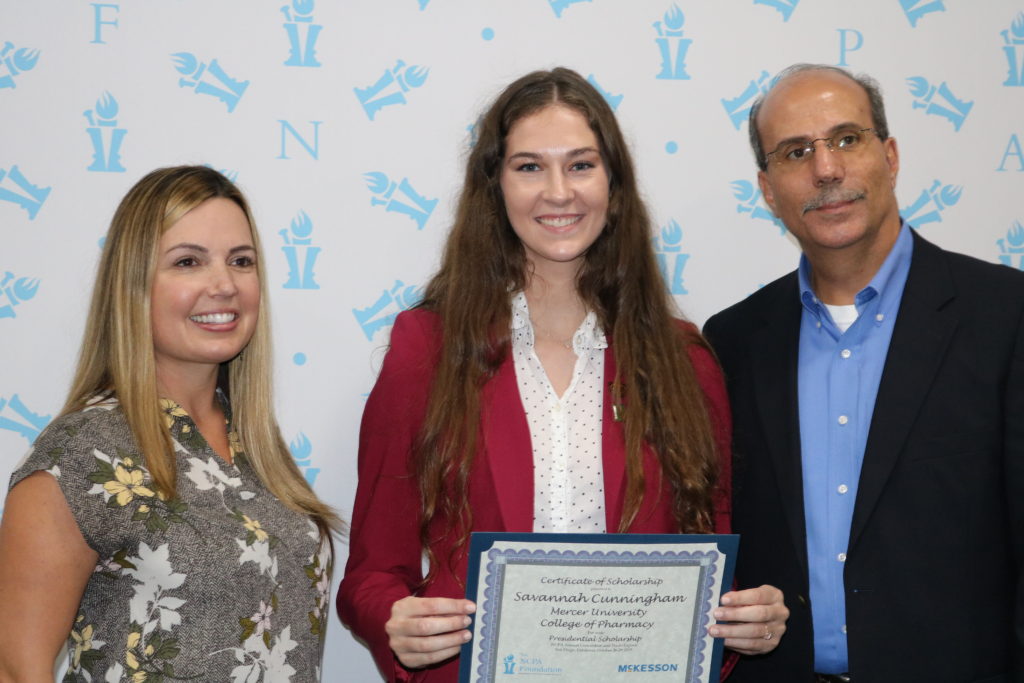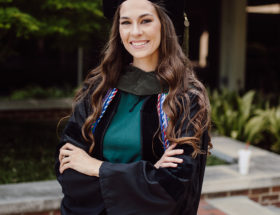2/10/2020
I recently was going through my credit card statement and noticed that it was split into spending categories. This spurred on my thought that breaking down our finances into a workable budget would probably be a good idea now that we are a year and a half into both school and marriage. Other students ask me all the time how I afford to attend conferences, or how to keep student loan debt as low as possible, so I am giving an in depth view of my finances for the semester thus far.

So using the handy dandy tool on the American Express website, this is the breakdown in spending from the month of January. Luckily, even though we have several credit cards, we only use this one, so this is pretty comprehensive of everything we spent in the first month of 2020.
This obviously does not include tuition or fees associated with school, that bar would far outweigh all the other expenses on this chart! My first year, I took out just enough loans to cover tuition, but no extra for living expenses, while Brandon took out about $4500 extra in loans per trimester to cover our personal expenses. (We share money, so it doesn’t really matter who takes out what.) Mercer’s cost is about $36,000 a year, and luckily I’ve been able to offset that a TON with scholarships, especially during my second year. (See number 5 in the Tips).
A note on traveling to conferences, because that is probably the biggest question I get about finances. Yes, I have been to over a dozen professional conferences since starting pharmacy school. I encourage other students to do the same for organizations that they are passionate about. I share over and over how many opportunities have been made available to me because of my attendance at these events and how many valuable connections I have made, but there are still a lot of student pharmacists who are skeptical due to cost. MAKE. THIS. A. PRIORITY. The job market for pharmacists is super saturated right now, and you HAVE to set yourself apart if you expect to get a job or residency that you love upon graduation. It’s all about who you know, and you’re not going to know anyone if you don’t take the time to go meet them at these type of events. Now that you understand how important attending professional conferences is, how do you afford it?
First, plan in advance which events you will attend for the year. Back in December I made a list for all of 2020 of the conferences I wanted to attend. Some are more pricey than others depending on location and length, but I now at least have a rough idea of what to expect for the upcoming year.
Then, look for scholarships or leadership positions through those organizations that might cover some of the costs of these events. Many pharmacy schools will also reimburse students for attending conferences. For example, Mercer helps to offset a lot of costs for students that are presenting research posters (which I will be doing for at least 3 of the conferences in 2020!)
Finally, like I said earlier, make this a priority! If you need to take out more loans for the year, DO IT. If you need to pick up some extra shifts, DO IT. If you need to pack 6 people into a hotel room to split costs, DO IT. This will be worth it 100%, trust me!
10 TIPS for success (in no particular order):
1. Get a credit card that earns you airline miles. We signed up for an American Airlines card before we got married because they were running a deal for 60,000 miles free when you sign up. We just recently used those miles for 2 round trip tickets to NYC over Christmas break! We now have switched to the Delta American Express card, which is the BEST decision we ever made. First, because Delta’s headquarters is in Atlanta, so I pretty much only ever fly Delta, and second because we got 70,000 bonus miles for signing up and earn so many points for our regular spending! That’s why we put almost all our expenses on that one card as well.

2. Look carefully for the best deal on rent possible. We currently only pay $1000 a month for rent (including water, trash, etc.) for a 2 bedroom apartment in Norcross. This location works great for us as it is about halfway between our two schools, and right next to the interstate. We love our apartment complex and haven’t had any major issues thus far, but we did do a lot of research and toured a lot of locations before settling on this one a couple years ago! Prices in Atlanta can be sky high, especially closer into the city, so weigh carefully your budget when choosing that fancy complex with the rent double what you might pay a little further out!

3. Get a job during school. This helps to avoid such high student loan balances and actually pays for about half of all our expenses throughout the year. I work more during Christmas and Summer break in order to prepare for the lower weekly hours that I typically work during the school semester. I also have multiple jobs and add on internships in the Summer time to be sure I am able to get sufficient hours!

4. Check each other on spending. This obviously works well for married couples, but could translate to anyone you feel comfortable sharing your financial situation with. For example, after realizing how much we were spending on Amazon purchases alone last year, Brandon and I instated a new rule that we must check with one another before buying anything in the Amazon cart.

5. Apply for scholarships. For my P2 year alone I have earned just over $20,000 in scholarships. These come directly from Mercer, my job at Walgreens, involvement in many professional organizations (NCPA, ACA, etc.), and outside sources (like the Tylenol Future Cares Scholarship). I always take the time to apply for scholarships when I see one that I fit the criteria for, and I am so glad I have, because I have cut down the costs for school by over HALF this year alone.

6. Make spending priorities. Travel to conferences, membership in professional organizations, and quality time with my friends and husband are all pretty high up there for me personally. So, even if that means sacrificing in some other areas or working a few extra shifts when I’m already exhausted from school, I will do it to make those things possible.

7. For students: speak with your parents and see if they are willing to make any kind of contribution to expenses while you’re in school. Luckily, both Brandon and my parents are kind enough to help us when we need it, and have given us great advice on best habits for financial success.

8. Make a budget and try to stick to it. This one is a tip for myself honestly, as we have kind of just been adopting the “let’s hope it works out” mentality for the last year. Making a budget will keep you much more on track, and using fun features like the spending categorization on your credit card apps can help too!
9. Leave room to have a little fun sometimes! It can’t always just be the essentials. Sometimes you have to go out to dinner, or even go on a 4 day cruise (hello Spring Break!) to give yourself a break and reward all that hard work in school. These costs can add up though, so be sure you’re not treating yourself too often.

10. Return any left over money from loans and try to pay down interest when possible. In graduate school, apparently interest on loans starts accruing way before you even graduate (how is this fair, I have no idea!) Over the Summer when we had a little extra cash at the end of the month, we decided to pay towards that interest so it doesn’t keep compounding! We also had some extra loan money left in the separate account we keep it in, so Brandon went ahead and returned it to the school so we are not adding to our final balance.
I know finances can be stressful, believe me! But having a plan in mind and talking it out with people who are more experienced than you (thanks, Mom and Dad) can help alleviate some of those worries. And it will all be worth it in the end when you get that Pharm.D. (or DO in Brandon’s case).




